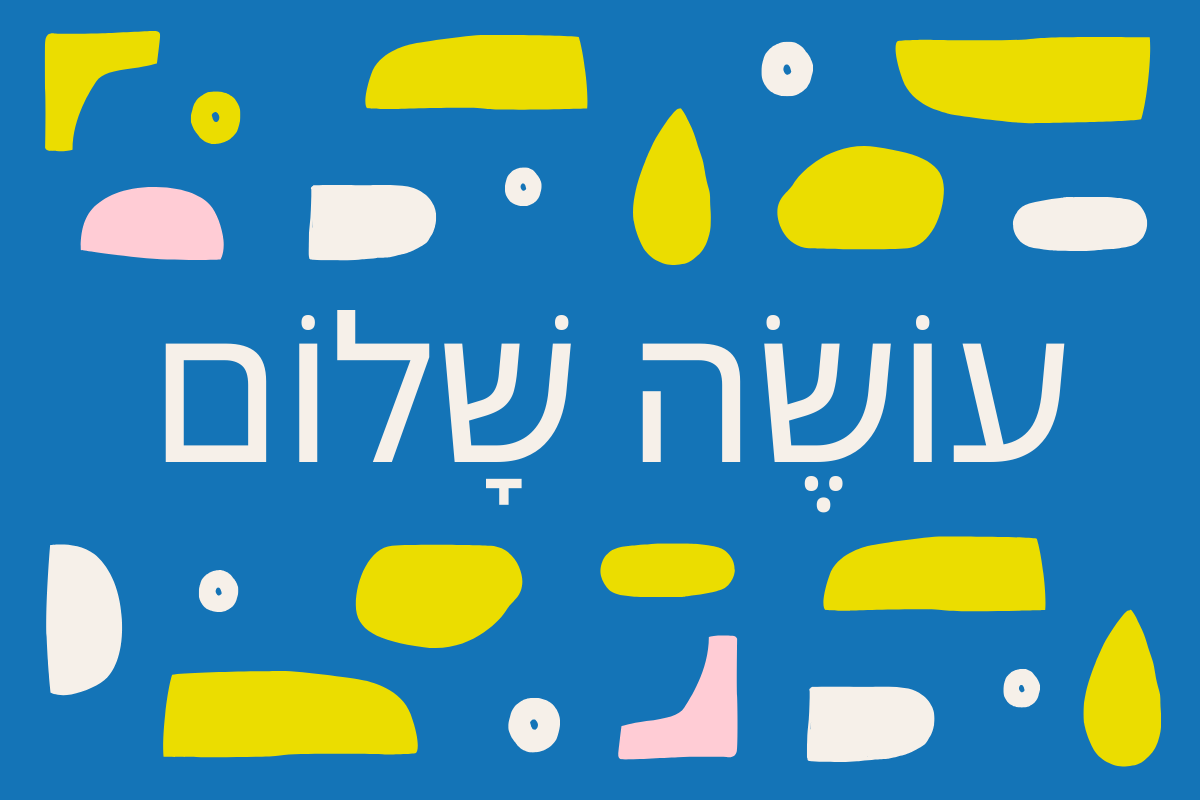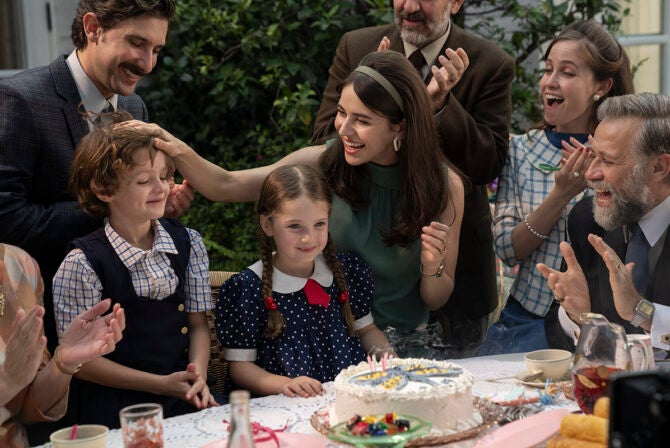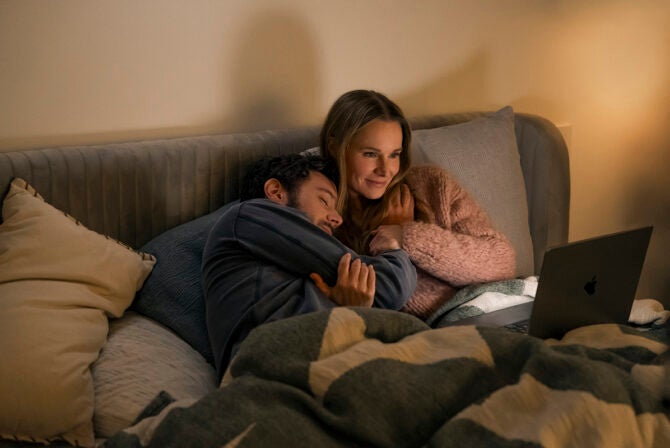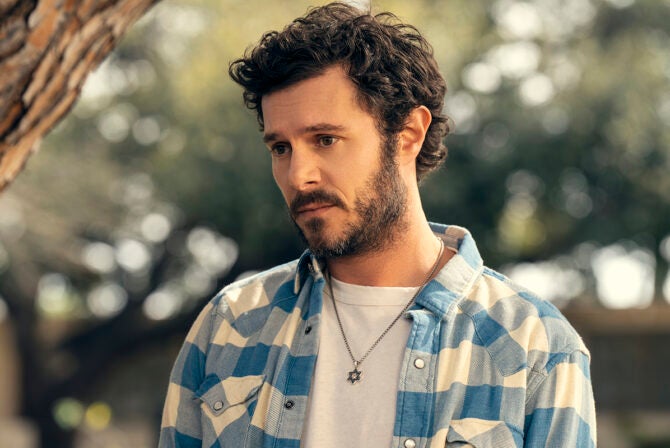When we look for solace, many of us turn to the Jewish prayer “Oseh Shalom,” featuring comforting words from the Kaddish that we often hear in Jewish spaces:
Oseh shalom bimromav, hu ya’aseh shalom aleinu v’al kol-yisrael, v’imru: amen.
Or in English: May the One who creates peace in the heavens bring peace to us and to all of Israel. And we say: Amen.
Peace certainly seems like the only way to put an end to all this grief. Yet I think another reason that a lot of us find hope in these lines is because we are used to hearing them as a song, and the meditational power of music is such a balm.
Some might be most familiar with the beautiful melody composed by Debbie Friedman. Many others are probably used to singing it to a tune that sounds like an old folk melody, but was in fact written in 1969 by one incredible prolific Israeli composer, Nurit Hirsch.
“A lot of people think that ‘Oseh Shalom Bimromav’ is a traditional, Jewish, ancient song. As you see, I am not that ancient,” Hirsch said at a performance in 2013. “I composed this song to words from the Kaddish, and I am especially tied to it; it expresses my deep connection to the Jewish people, and every time I hear people sing it, it moves me like it’s the first time.”
Hirsch was in her late 20s when she wrote the tune of “Oseh Shalom” for the first Hasidic Song Festival in Israel, and it was originally sung by the great Yigal Bashan. With both a klezmer and bossa nova feel, the song got third place in that competition, and quickly became popular in Israel before making its way into synagogues and Jewish spaces all over the world.
As the Yom Kippur War broke in 1973, a group of artists, actors, musicians and writers got together for a special hour-long broadcast to lift up the souls of a broken nation. Among the many incredible performers was Hirsch herself, singing “Oseh Shalom,” her deft fingers moving effortlessly on that piano, her face grave with emotion. As she finishes playing, her face is still facing the keys, her body bent towards the piano.
At that time, Hirsch also wrote the melody to one of her most celebrated songs with her longtime collaborator Ehud Manor. “LaLechet Shevy Acharaich,” which means “To Be Captivated By You,” is an ode to a country in crisis and pain.
Hirsch, who turned 81 this summer, is not only prolific — she’s written over 16,000 — but the range of music she’s created is so great, it’s almost hard to take in. She wrote countless children’s songs — like the lovely “Barba’aba” and “Ani Gingi” (“I Am a Redhead”), has composed songs for the army band, has written traditional Jewish music and composed the classic Rosh Hashanah song “Ba’Shana HaBa’a.” She’s also written jingles and music for TV and movies, from the opening of “Krovim Krovim,” a beloved Israeli sitcom, to the melodies of the celebrated musical film “Sallah Shabati,” starring Chaim Topol.
Hirsch also made Eurovision history. In 1973, she became the first woman to conduct the Eurovision orchestra during the competition held in Luxembourg that year, where the song “Ey Sham” (“Over There”) that she co-wrote with Manor was performed by Israeli singer Ilanit.
In 1978, another Manor collaboration of hers won the Eurovision. “A-Ba-Ni-Bi” was performed by Izhar Cohen and Alphabeta, and Hirsch was once again seen conducting on the stage in Paris, smiling and waving at the crowd.
In 2016, she was awarded the Jewish nation’s greatest honor, the Israel Prize.
Listening to various versions of “Oseh Shalom,” I am struck by the differences of Hirsch’s melody and Debbie Friedman’s. Friedman’s is heartfelt and laced with melancholy, yet at the end finds anexalting joy as Friedman speeds up the song.
Hirsch’s version, on the other hand, has a somber quality to it; it feels grave and heavy and as it picks up tempo, it still remains determined. Perhaps it is because Hirsch, as an Israeli, has seen war, so much conflict, so many losses. Prayers for peace are moving and helpful, but they come at times of deep, deep strife, when the price of war feels too much to bear.
May we see days of peace soon. And we say: Amen.








